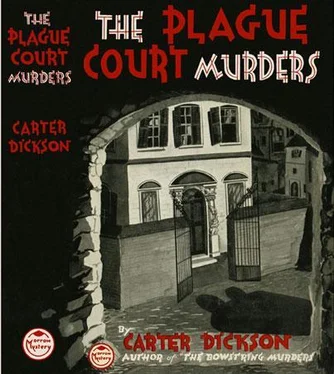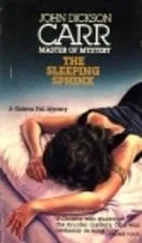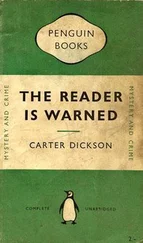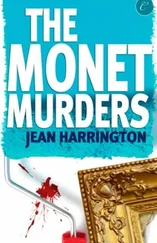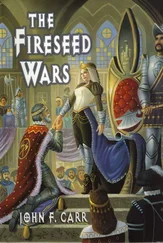"Daily Express, Inspector," replied a voice out of the gloom. "The sergeant said…"
Masters charged down the steps and disappeared. There was a flurry of high-colored language, and presently he came back breathing hard.
"It don't much matter, I daresay," he said gloomily. "According to what we know. I was telling you. The door - well, you know about the door. Bolted, and barred; and not one of those bolts you could do tricks with, either. It's hard enough to pull back even when you're inside the place ...”
"Finally, here's the incredible thing. We shall have to wait until daylight for full confirmation, but I can tell you I know now. With the exception of the tracks you and I made-and those who came out afterwards all carefully kept in our tracks, so there'd be one line and no confusion - there isn't a footprint anywhere within twenty feet o f that house. And you and I know, don't we, that when we first walked out there we saw no footprints at all along the direction we went?"
That was unquestionably true. I cast my mind back along that thin and glue-like sheet of mud: unbroken anywhere in the direction we walked. But I said:
"Still, look here, Masters. . . . Plenty of people had been walking about the yard earlier in the evening, and in and out of the house, while it was raining. Why is the mud unbroken, then? How did there come to be no footprints when we went out?"
Masters got out his notebook, pinched his nose, and frowned. "It's something to do with the soil. Something about stratum-deposits, or physics - or the like; I don't know, but I've got it here," he said. "McDonnell and Dr. Blaine were talking about it. The house out there is on a kind of plateau. When the rain stops, it runs down and carries a fine sandy silt away from the place-like a mason spreading out mortar with a trowel, Bert said. The yard smells badly, you noticed. And you could hear a sort of wash out there when the rain had stopped. Bert thinks there's probably a drain somewhere, running underground to the cellar.... Anyhow, the rain had stopped a good three quarters of an hour before Darworth was killed, and the mud had thickened over like a jelly."
He went back into the kitchen, rubbing his face dully. Then he sat down dully on the packing-case behind the work-bench; a weird and muddy-looking Inquisitor for this bleak room.
"But there it is solid. Unbreakable. Impossible. Ur! What am I talking about?" the Inspector muttered. "I must be getting old, and I'm sleepy. No footprints approaching the house; none! Doors and windows, floor, ceiling and walls, tight as a stone box! Yet there's got to be some way out. I won't believe-"
He was looking down at the papers on the work-bench: at George Playge's manuscript,, the deed, and the newspaper cutting. He turned them over with dull curiosity, and then put them into the file-book.
"I won't believe," he went on, holding up the file and rattling it savagely, "this."
"You've left few enough tatters of the supernatural, Masters. Once the police come trampling in, poor old Louis...." I remembered Lady Benning twisting round to glare at me, and the words she had said. "Never mind. Anything in the nature of a definite clue?"
"Fingerprint men working now. I've got a cursory report from the doctor, but we can't get the full P-M until tomorrow. The van's here, and they'll move him as soon as Bailey gets finished with the interior photographs. Aaa-h!" he snapped, and clenched his hands. "I wish it 'ud get daylight. Between ourselves, I never wanted daylight so much. There's an indication somewhere - somewhere - if I could see it. And I've bungled this, too. The assistant commissioner'll say I shouldn't have let any footprints get out there; that we should have put down boards, or some like foolishness. As though you could! I begin to see, ah, ah! I begin to see how hard it is to be methodical, and think of everything, when you're mixed up in a case yourself. Clues? No. We didn't find anything more than you saw - except a handkerchief. It's Darworth's; had his initials on it, and it was lying under him."
"There were some sheets of paper and a fountain pen on the floor," I suggested. "Anything written?"
"No such luck. Blank. Empty. Swept clean. And that's all."
"So - now what?"
"Now," said Masters vigorously, "we interview our little tea-party. Bert's taking charge outside, and we shan't be interrupted.... Now, let's get this straight, from my notebook. It was, h'm, I judge it was roughly half-past twelve when Bert and Mr. Halliday and I left you here reading this - this bosh, and went out front there. Miss Latimer thought something had happened to Halliday, and grabbed him when we got to the front hall. Then we went into the room where the rest of 'em were, Bert stopping outside, and I had a talk which was-" he scowled.
"Abortive?"
"Ah! I suppose so. Yes, I daresay. Anyhow, the old. lady (as cool as you please) ordered me to hunt over the house for some chairs so's they could all sit down. And I did. Blast her.... Besides, it was a good chance for a look round. The place is full of broken furniture. Then they slammed the door in my face; but we'd got young Joseph. Bert and I took him to a room across the hall from theirs, which is full of old junk, and we lit a candle and had a talk with Joseph. . . ."
"Was he full of morphine then?"
"No. But he needed it. He would sit quiet for a while, and then he'd jerk. He wouldn't admit anything. But then, I can remember now, was when he got the morphine. He kept complaining about it being too warm, and rushed over to where it was dark and pretended to be trying to push the boards off a window. He wasn't doing that, because when I went over after him I caught him' putting something back in his inside pocket.... Oh, there was no, rough stuff!" Masters added suspiciously. "Just a little, um, polite firmness. Ha. Well, I thought if it was dope, I'd give it a chance to work before I tackled him again. So I left him with Bert who," snapped Masters, "who's too bloody polite to be in the Force anyway, and I went out to have a thorough look round the house. That would have been about ten minutes to one, maybe more; but we hadn't been much time.
"I went out in the hall. The other room, where the five of 'em were, was quiet, and I thought it was dark.... But the front door was partly open. The big door, you know. The one we came in by."
His face was so portentous as he looked at me that I said:
"Masters, this is nonsense! Surely nobody would dare, when there was a police officer just across the hall.... Besides, that big door was open when we arrived. Maybe the wind.. . . “
"Ah!" growled the inspector. He tapped his chest.
"That's what I thought, too. I wasn't paying any attention to these people inside; I had my eye on Darworth, you see. I wanted to queer a game of his, and so.... Well! I shut the door: firmly. Then I went upstairs to prowl. We'd thought, before, that you might get a better view of the house from a back upstairs window, but you couldn't. And when I came downstairs, the front door was partly open again. I'd only a flashlight, but it was the first thing I spotted."
He knocked his fist on the work-bench. "I tell you, sir, alone in that place ... I damned well got the wind up myself. If I'd only thought that somebody had designs on Darworth ... I went out the front door. . . ."
"The place is muddy all around," I suggested. "Footprints?"
"There were no footprints whatever," Masters returned quietly.
We looked at each other. Even with the police in possession, with flash-powders exploding and reporters fighting for news, this house had become full of more monstrous and terrible things than existed in the letters I had read.
"I went round the side of the house," the inspector continued, "and I've told you what I saw and heard. Shadows inside. Darworth moaning or imploring. Then the bell."
Читать дальше
